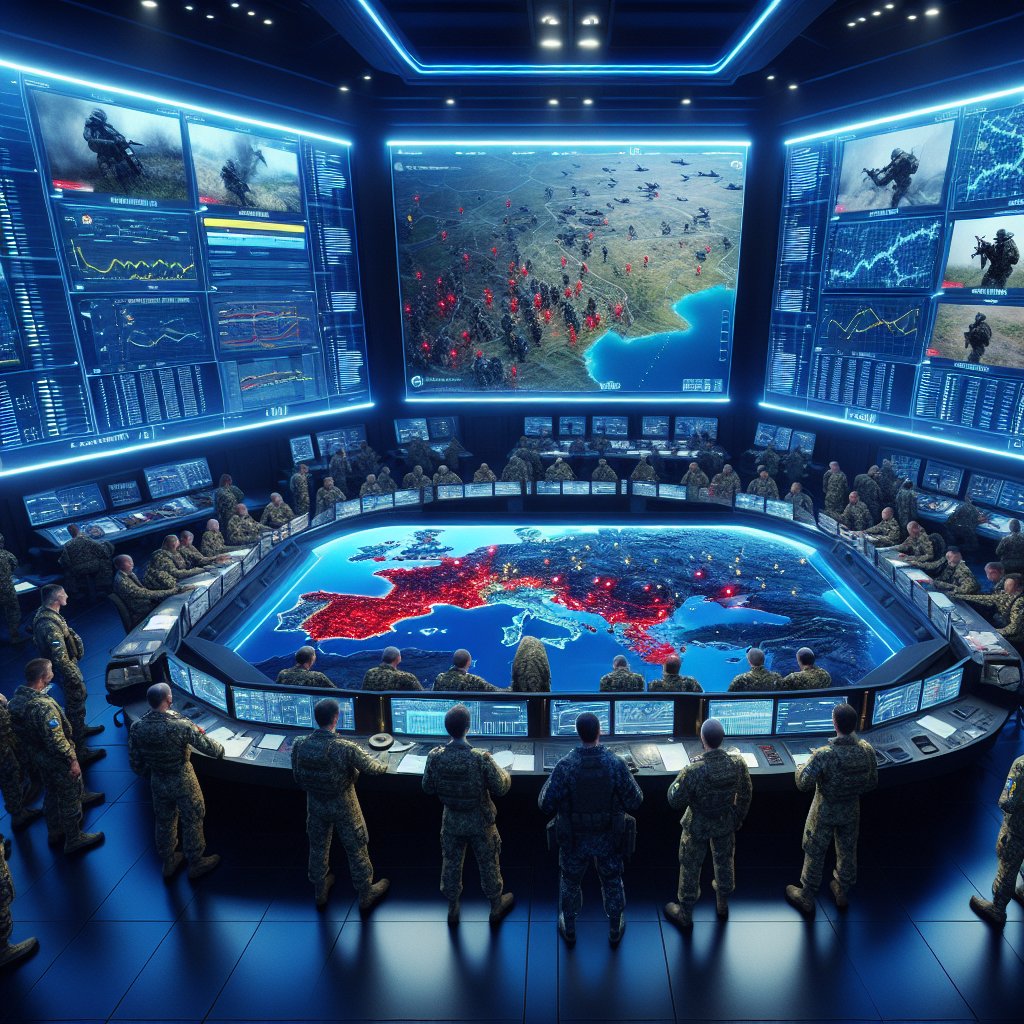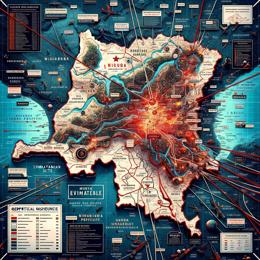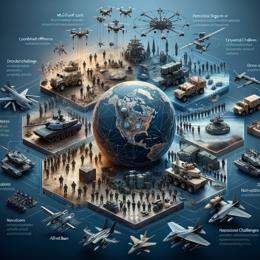Image created by AI
Ukraine's Strategic Offensive Shifts the War Dynamic
In a remarkable and unexpected turn of events, Ukraine has managed to reclaim massive swathes of Russian territory, causing significant geopolitical repercussions and potentially altering the course of the ongoing conflict. This marks the first time since the Second World War that Russia has faced such a breach in its borders by a foreign military force, raising questions about President Vladimir Putin's stronghold and the effectiveness of the Western aid in Ukrainian hands.
The Ukrainian military, for long perceived as the underdog in the face of a numerically superior Russian force, has orchestrated what appears to be a brilliantly executed combined arms offensive, leveraging years of Western military advice, training, and advanced weaponry. The surgical precision of coordinating infantry, armor, artillery, air support, and other elements such as cyber and information warfare signals Ukraine's growing military prowess and poses a serious threat to Putin's geopolitical narrative.
The offensive has had a multi-fold effect. Domestically, it has bolstered the morale of the Ukrainian population, providing a beacon of hope amid growing war weariness and internal displacement. This extraordinary feat of reclaiming land from Russia may well reignite national unity and support for President Volodymyr Zelensky's administration.
In Russia, the symbolism cannot be overstated. The invasion of Russian soil dismantles a long-standing geopolitical strategy aimed at preventing exactly this scenario. Memories of past invasions by Napoleon and Hitler are deeply entrenched in the Russian military psyche, and the current situation represents more than just a loss of land—it constitutes a profound shake-up of Russian's historical narrative of impregnability.
Furthermore, the development sends a critical message to the international community. For Western nations that have backed Ukraine, the current victories vindicate their support and could bolster further assistance. Global powers watching from the sidelines might also reconsider their positions vis-à-vis the Russian Federation.
While Ukraine's control of Russian territories including Belgorod and Kursk is a notable strategic advantage, it sets up a precarious situation. Holding on to a salient—a territory projection surrounded by enemy lines—is a formidable military challenge and could invite a fierce counteroffensive from Russia.
However, this move by Ukraine also has strategic implications beyond the battlefield. It alters the narrative from Ukrainian defense to active incursion, potentially paving the way for a stronger position in future negotiations. Additionally, the capture of Russian prisoners offers leverage that could be instrumental in the release of Ukrainian soldiers held by Russia.
As the war continues, Ukraine's aggressive stance has reshaped the dynamic on the ground, both militarily and politically. Although it seems unlikely for Ukraine to push towards Moscow, the strategy of holding onto reclaimed territories could prove strategically wise, forcing a recalibration of Russian military tactics and international perceptions of the conflict.
This bold operation underscores that even a smaller nation, when backed by strategic support and deft military planning, can challenge a larger adversary. As the war progresses, the implications of Ukraine's offensive for the broader geopolitical landscape are profound and far-reaching, signaling a possible turning point in a conflict that has gripped the world's attention.










